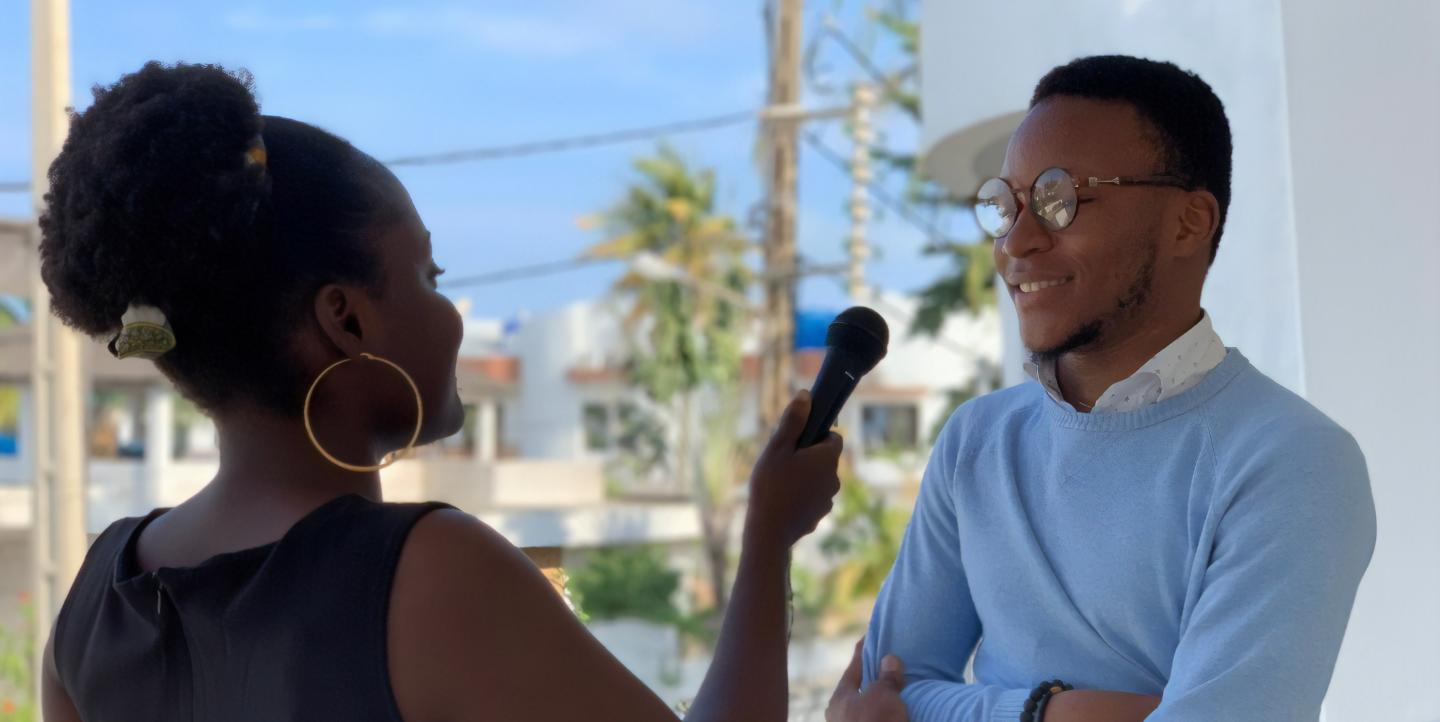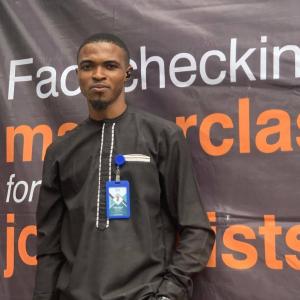The rise of misinformation in Africa has led to a series of consequences, among them conflict and violence, and a lack of trust in healthcare systems.
Earlier this year, for example, a number of false narratives were spread about the farmer-herder crises in Nigeria. Although this conflict has roots dating back to the 19th century, misinformation continues to aggravate the issue today, resulting in more violence.
In Kenya, mis- and disinformation influenced citizens’ opinions on the democratic process during the 2017 presidential election. One false video spread online indicating that then-President Uhuru would win the upcoming election, was created to appear as if it was from the BBC's Focus on Africa program. In Côte d'Ivoire, misinformation contributed to post-election violence in 2020, in which more than 50 people were killed.
With the spread of misinformation continuing to contribute to these crises, combating it has become a priority for journalists across Africa. A new class of women journalists and fact-checkers are working diligently to normalize fact-checking and verification.
Identifying political misinformation
Determined to combat the spread of political mis- and disinformation, women fact-checkers in Africa are using several methods to verify information in their respective countries.
In Nigeria, Oluwapelumi Olajiga, a fact-checker at Roundcheck, is focused on identifying hoaxes posted on social media. In one report she investigated a link posted on WhatsApp that falsely claimed that Nigeria’s National Population Commission (NPC) launched a recruitment empowerment portal ahead of the country’s 2022-23 census. Verifying this claim was necessary because the website was created to steal important information from unsuspecting public figures, who may have not questioned its legitimacy due to a desire to work with the NPC for the census exercise, Olajiga explained. With the help of scam adviser and website informer tools, Olajiga was able to verify that the website was fake.
“People are prone to clicking links and news reports because it aligns with their needs and biases,” she said. “Their safety is important, and that is why I’ve dedicated my time to ensuring that people know the true intention behind these hoaxes.”
In Kenya, Africa Uncensored fact-checker Linda Ngari, dedicated the last three years of her career to identifying misinformation spread during political rallies and speeches. Through her work, Ngari verifies claims made by politicians using data from the Kenya National Bureau of Statistics and open source intelligence tools.
In April, Ngari fact-checked claims made by Raila Odinga, a presidential candidate and party leader of the Orange Democratic Movement, during a speech he gave at the Chatham House. In one of the claims, Odinga said that after the 2008 Kenya election, the county’s annual growth rate dropped from 8% to 2%. Ngari found that the 8% growth rate Odinga quoted was highly exaggerated.
“Covering political statements and rallies is important because false information spread in such a gathering or in between speeches can aggravate conflicts and lead to electorates making bad decisions, which could affect and influence the whole electioneering process,” she said.
Combating health misinformation
In the wake of the increased spread of diseases like Ebola and COVID-19, combating the spread of health misinformation has become paramount for journalists in Africa.
Motunrayo Joel, Africa Check Nigeria's deputy editor, has been working to combat the spread of different forms of health misinformation for the past five years. In July, Joel raised awareness about the Marburg virus disease caused by an often deadly virus related to Ebola.
Joel’s goal was to educate people about how the virus is transmitted and also how the risk of contracting the virus can be reduced. “Fact-checking a health claim that could cost the life of just one person is what drives me. There is so much fake news flying here and there within the health space, and I must not turn a blind eye to it,” he said.
During the height of the COVID-19 pandemic, Liberian investigative journalist Bettie Johnson-Mbayo and her colleague, Hannah Geterminah, founded The Stage MEDIA, Liberia’s first fact-checking institution. Focused on combating misinformation around health, politics and climate change, one of their major reports debunked the falsely reported death of former Liberian president Ellen Johnson Sirleaf due to illness, which was widely spread on social media platforms.
"We hope that as we continue to increase the literacy of individuals, [we will] help them understand the importance of verifying information before [it is] disseminated. We also provide our reports in the Pidgin language to reach audiences that are not media literate," said Johnson-Mbayo.
Challenges
While verifying information has become an integral part of these women fact-checkers' jobs, it continues to be a difficult task to complete in Africa. “Fact-checking in Zimbabwe is a big challenge. Lack of data and experts is an issue. Compounding all this is the lack of resources to build up fact-checking and get more fact-checkers trained,” said Lifaqane Nare, a fact-checker at FactCheckZW.
In addition to minimal funding and the unavailability of many experts to assist with fact-checking, sexism in the media remains a major hurdle for women fact-checkers in Africa. “Donors have more interest in male-run media institutions than female-owned [ones]," said Johnson-Mbayo. In Liberia, for example, “There are numerous media, and less than 5% are managed by women. We knew it was a struggling space when we stepped into it.”
To face these challenges, women fact-checkers are encouraging collaboration to better combat misinformation across the continent, said Melody Lawal, program officer of the International Press Council. “A coalition between the women in broadcast and print or online to produce programs and projects [related to verifying information] will make fact-checking spread to everyone, irrespective of illiteracy level,” she said.
“All must be considered in attempts to promote media literacy in Africa, even to the grassroots level.”


